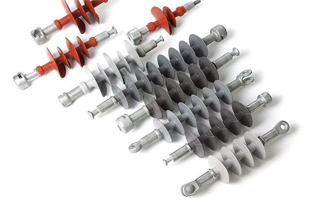What Conditions Should a Good Composite Insulation Material Have?
Because the excellent composite insulating material has excellent insulation strength and is easy to process, it is widely used in the insulation of power supplies, electrical appliances, and motors, and can be used for insulation and shielding of copper and aluminum.
According to the specific insulating material to judge a good insulating material, it should have the following characteristics:
1. High insulation resistance and resistivity: Resistance is the reciprocal of conductance, and resistivity is the resistance per unit volume. The poorer the conductivity of the material, the greater its resistance, and the relationship between the two are inversely proportional. For insulating materials, it is ideal that the resistivity should be as high as possible. Grandmother
2. The relative dielectric constant is small and the dielectric loss tangent: insulating materials are used for two purposes: mutual insulation of power grid components and capacitor dielectric (energy storage). The former requires a relatively small dielectric constant, the latter requires a relatively large dielectric constant, and both require a small dielectric loss tangent, especially in the application of high frequency and high voltage insulation materials. In order to make the dielectric loss small, Use insulating material with a small dielectric loss tangent.

Composite Insulators
3. The breakdown voltage is high enough and the electric strength is high: the insulating material is damaged under the action of a strong electric field, and the insulation performance is lost to a conductive state, which is called breakdown. The voltage at the breakdown is called breakdown voltage (dielectric strength). Electric strength is the quotient of the voltage at breakdown under certain conditions and the distance between the two electrodes withstanding the applied voltage, that is, the breakdown voltage per unit thickness. For insulating materials, the higher the breakdown voltage and electric strength, the better.
4. Good tensile strength: refers to the tensile stress that the specimen bears in the tensile test. It is a representative testing method for the mechanical properties of insulating materials.
5. Strong flame retardancy: refers to the ability of insulating materials to resist burning when in contact with the flame or the ability to stop burning when leaving the flame. With the increasing application of insulating materials, improving the flammability of insulating materials becomes more and more important. The higher the flammability, the better the safety.
6. Excellent arc resistance: the insulating material's ability to resist arc action along its surface under the specified test conditions. In the test, the arc resistance of the insulating material is judged by the time required for the arc generated by the alternating high voltage and small current to form a conductive layer on the surface of the insulating material. The higher the time value, the better the arc resistance.
7. Good airtightness: good oil and water isolation.
We are Power Line Hardware supplier. Our company provides high-quality composite insulators. If you are interested in our products, please feel free to contact us.
+86 319 878 9350
+86 156 1304 7999
+86 319 878 9350
NanYan, DongHuan Road, Shahe, Hebei China
Copyright © Hebei Yipeng Line Equipment Co., Ltd. All Rights Reserved. | Sitemap Powered By 
